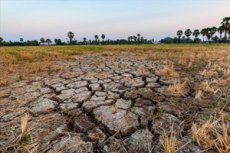
伦敦大学学院 (UCL) 领导的研究小组表示,气候变化及其对天气模式和恶劣天气事件的影响可能会对脑部疾病患者的健康产生负面影响。
在《柳叶刀神经病学》上发表的一篇论文中,研究小组强调迫切需要了解气候变化对神经系统疾病患者的影响,以维护他们的健康并防止不平等现象加剧。
在审查了 1968 年至 2023 年间全球发表的 332 篇论文后,由伦敦大学学院皇后广场神经病学研究所的桑杰·西索迪亚教授领导的研究人员得出结论,气候变化对神经系统疾病的潜在影响规模将是巨大的。
他们研究了从 2016 年全球疾病负担研究中选出的 19 种不同的神经系统疾病,包括中风、偏头痛、阿尔茨海默病、脑膜炎、癫痫和多发性硬化症。
研究小组还分析了气候变化对几种严重但常见的精神疾病的影响,包括焦虑症、抑郁症和精神分裂症。
西索迪亚教授同时也是癫痫协会基因组学主任和癫痫气候变化组织的创始人。他表示:“有明确的证据表明气候会影响某些脑部疾病,尤其是中风和神经系统感染。已被证明会影响脑部疾病的气候变化包括极端气温(冷和热)以及较大的日温差,尤其是在这些温差与季节不符的情况下。”
夜间温度可能尤为重要,因为夜间温度过高会影响睡眠。众所周知,睡眠不足会加重多种脑部疾病。
研究人员发现,随着环境温度升高或热浪来袭,因中风住院、致残或死亡的人数会增加。
此外,研究小组表示,痴呆症患者容易受到极端温度(如中暑或体温过低)和天气事件(如洪水或野火)的伤害,因为认知障碍可能会限制他们适应环境变化的能力。
研究人员写道:“风险意识下降伴随着寻求帮助或减轻潜在伤害的能力下降,例如在炎热天气下多喝水或调整衣物。虚弱、多种疾病和精神药物会加剧这种脆弱性。因此,气温波动加大、天气变热和热浪会导致痴呆症相关的住院和死亡人数增加。”
此外,许多精神障碍的发病率、住院率和死亡风险与环境温度升高、每日温度变化或极端高温和低温有关。
研究人员指出,随着恶劣天气事件的严重程度增加和全球气温上升,人们正面临日益恶化的环境因素,而这些因素在分析中审查的一些早期研究中可能还不足以影响脑部疾病。
因此,他们认为,确保研究的相关性并不仅考虑到气候变化的现状,还要考虑到未来,这一点很重要。
西索迪亚教授表示:“这项工作是在气候条件急剧恶化的背景下开展的,需要保持灵活性和动态性,以便提供对个人和组织都有用的信息。此外,目前评估未来气候情景下脑部疾病对健康影响的研究有限,这使得前瞻性规划变得困难。”
他补充道:“气候焦虑的概念是一个额外的、潜在的重要因素:许多脑部疾病与更高的精神疾病风险相关,包括焦虑症,而这些多重疾病可能会进一步加剧气候变化的影响以及保持健康所需的适应措施。但我们现在可以而且应该采取行动。”

